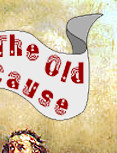|
|
|
August 10, 1999 MERE "ISOLATIONISM": THE FOREIGN POLICY OF THE OLD RIGHTOne of the "old causes" embraced in this column – perhaps the most important one – is that of the "isolationist" Old Right. As used by the late Murray Rothbard among others, the term Old Right refers to a loose coalition opposed to the New Deal in both its domestic and foreign aspects. While not following a strict "party line," Old Rightists largely spoke from the ground of classical liberalism and classical republicanism. This earned them epithets like "conservative" and "reactionary" since those two outlooks were rooted in actual American life. Having something to conserve made them "conservatives" – a terrible thing from the standpoint of the Party of Progress. This was a label which many on the Old Right rejected, arguing with a certain dogged futility that they were the real American "liberals." (See Justin Raimondo's Reclaiming the American Right for more on this movement.) The Old Right was effectively dead by 1955 with the death, electoral defeat, or retirement of many of its prominent figures. More importantly, the Right was undergoing an ideological make-over as new spokesmen (hereafter called the New Right) rushed headlong into interventionism and overseas empire under Cold War slogans and policies largely invented by Establishment Liberals. In an interesting case of cultural lag, the American press continued to refer to the "conservatives" or whatever as "isolationists" well into the later 1950s. They didn't fully take on board the transformation of the Right until 1964, when they had to denounce Barry Goldwater as an inhumane, trigger-happy fellow, who wanted to immolate poor flower-picking little girls in nuclear Armageddon, unlike Ole LBJ, who would never, never get us into a wider war anywhere. But at least they finally noticed the existence of the New Right. As Carl Oglesby pointed out (speaking of Vietnam), the Goldwaterite New Right "accepts the political description [of the war] and therefore wants the war to be more fiercely waged" – a point which applies to the entire Cold War. For the Goldwaterites far more active policies were necessary to "win" that great cosmic struggle than those undertaken by the inept Liberals. The problem was in the premises, and this brings me back to the Old Right's distinctive take on foreign policies. It was hard to stampede the Old Right into futile crusades involving Total Good vs. Total Evil. As critics of our intervention in World War I, they were aware of the costs of grand ideological crusades and of war itself. This – rather than some unexplained fondness for foreign governments known for big parades and funny salutes – accounts for their participation in the America First movement. (Actually, the Liberals "explained" it on the view that everyone to their Right has bad motives – fascists! Nazis! – whereas those to their Left are basically good but in too much of a hurry, but I think we can reject this construct.) For some Old Rightists the aversion to intervention and "futile crusades" continued into the early Cold War period. These so-called "isolationists" (to use the term foisted on them by their interventionist enemies) worried about the risk of war, the costs of war, and the domestic consequences of imperial policy. They well understood Randolph Bourne's statement that "war is the health of the state." Permanent mobilization in time of peace – the essence of the Cold War – fostered many undesirable policies. Conscription was especially evil. Senator Taft called it "essentially totalitarian" and added, "it is the most extreme test of our whole philosophy.... We shall have fought to abolish totalitarianism in the world, only to set it up in the United States." When the Truman administration brought in legislation for peacetime conscription or UMT, Congressman Howard Buffett argued that Selective Service "would prove to the world that Hitler was right – that the threat of communism externally justifies militarism and regimentation at home" It rested on "the totalitarian concept that the state owns the individual." Congressman Lawrence Smith complained that there would be "no escape" from "economic controls, manpower controls, and the regimentation that goes with dictatorial power." Felix Morley, President of Haverford College, wrote in 1954 that centralization must accompany our increasingly imperial foreign policy. Our institutions, "rather than our imperial policy... will be modified." Congress was becoming a mere rubber-stamp for agencies working in pitch-black secrecy like the CIA and Atomic Energy Commission. In 1957, Morley wrote in Modern Age that America had reached a point where "we have a vested interest in preparation for war." Defense spending was a major prop of full employment and we were dangerously addicted to it. Behind the screen of secrecy which the Cold War made possible, we were "losing the substance of self-government" to a rising "self-perpetuating managerial elite." I seem to recall that C. Wright Mills said something similar. Veteran anti-New Deal writer John T. Flynn, a central Old Right figure, wrote in 1955:
Such biting criticism was banished from the Right, or New Right,
by the mid fifties and complainers like Morley and Flynn were increasingly
isolated. The Old Right detested Soviet communism. Its power, where
it existed, made them uneasy. But they refused to turn a blind eye
to the dangers of American empire, American bureaucratization, and
American militarism. Sustained interventionism, under the Cold War
banner as under any other one, deeply threatened America's historically
unique culture of liberty. Perhaps no one on the Old Right made
the point as well as the industrialist Ernest Weir in a speech in
early 1951: After forty some years of the Cold War and with no real "dismantling" of its structures – including our old pal, NATO – in sight despite the collapse of the official enemy, it may be time to have another look at the Old Right's critique of the Cold War and intervention. The Old Right was made up mainly of right-wing Republicans who wished to avert the institutional and economic costs of war and empire. As such, they are not seen as worthy predecessors by the anti-war Left and their insights have been abandoned by most of their Republican successors. Yet they saw that making the authoritarian fixtures of war into permanent "peacetime" policies was the high road to the garrison state. At the same time, the extension of US "interests" all over the world was turning the Old Republic into an Empire. In 1992, Charles Krauthammer wrote that renewed "isolationism" on both sides of the political spectrum posed a grave threat to proper (interventionist) US foreign policy. The threat came from right-wing isolationists (Midwestern boneheads who refuse to learn French?) and former "peaceniks" traumatized by Vietnam. (Since then, we have found out that some of the peaceniks do enjoy bombing foreigners, and Krauthammer himself discovered an intervention he didn't like, and for this he should be commended). Well, renewed "isolationism" anywhere and by whatever name is something to cheer about. Even so, the task is even more daunting than Ernest Weir predicted, since three, rather than two generations have grown up under the impression that all the inroads made against liberty and property in that timespan are "normal" and even, in a joking sort of way, "constitutional." Note: Due to a typographical error, Chosroes (or Khushraw) appeared without his first "s" in last week's column. I regret any offense given to adherents of the former Parthian Empire.
Joseph R. Stromberg has been writing for libertarian publications since 1973, including The Individualist, Reason, the Journal of Libertarian Studies, Libertarian Review, and the Agorist Quarterly, and is completing a set of essays on America's wars. He is a part-time lecturer in History at the college level. You can read his recent essay, "The Cold War," on the Ludwig von Mises Institute Website. His column, "The Old Cause," appears each Tuesday on Antiwar.com.
Please Support Antiwar.comA contribution of $20 or more gets you a copy of Justin Raimondo's Into the Bosnian Quagmire: The Case Against US Intervention in the Balkans, a 60-page booklet packed with the kind of intellectual ammunition you need to fight the lies being put out by this administration and its allies in Congress. Send contributions to Antiwar.com or
Contribute Via our Secure Server |









